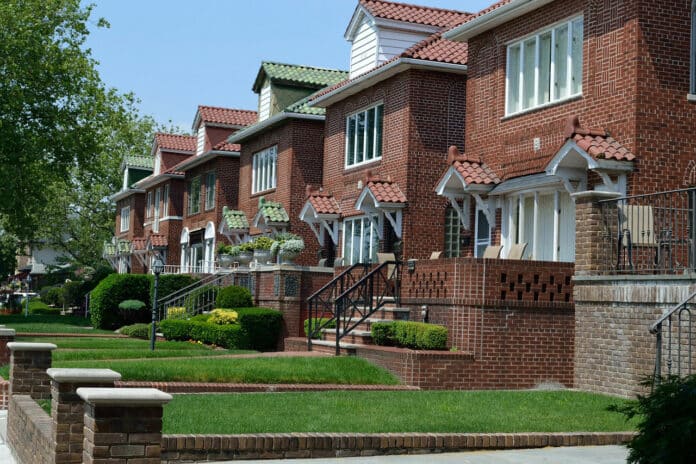Healthy neighborhoods are a foundation of good health. This is particularly true regarding mental health, where social cohesion can confer strength, health and resiliency. However, community connections can be disrupted by gentrification, the process of rapid development in historically disinvested neighborhoods.
The gentrification burden, including increased living expenses and disrupted social networks, disproportionally impacts certain residents. To ultimately target health promotion interventions, a new study examined serious psychological distress time trends in gentrifying New York City (NYC) neighborhoods to describe the association of gentrification and mental health overall and stratified by race and ethnicity.
For the study, scientists conducted an ecological time series analysis of the prevalence of severe psychological distress during 2002–2015 in NYC neighborhoods, stratified by level of gentrification and race/ ethnicity.
In hyper-gentrifying neighborhoods, White populations had a reduced prevalence of severe psychological distress, with no corresponding reduction for Black and Latino populations. In contrast, in gentrifying neighborhoods, Black and Latino populations experienced reduced severe psychological distress while White populations experienced an increased prevalence trend. In not gentrifying neighborhoods, Latino populations experienced reduced serious psychological distress, while movements were stable for White and Black populations.
Scientists noted, “These findings enhance our understanding of gentrification and health by showing how neighborhood population mental health in NYC has changed over time as neighborhoods themselves have changed, and by reinforcing the notion that gentrification has differential racial/ethnic impacts and can exacerbate health disparities.”
Previous research has found that original residents might benefit from neighborhood gentrification, while others suggest that original residents might be harmed by it.
“While gentrification can improve neighborhood infrastructure, enhance safety, and increase economic opportunities, it can also exacerbate income inequality, segregation, discrimination, and displace political power, minimizing the voices and political representation of original residents. Gentrification can cause community and cultural displacement, resulting in heightened policing to maintain order.”
“All of these changes can increase stress and anxiety among original residents. In participatory research, original neighborhood residents expressed sadness, loss, and feelings of powerlessness in relation to gentrification.”
“By measuring gentrification and its associations with mental health, we contextualize current health outcomes with a lens of historic neighborhood disadvantage and systemic racism, essential to understanding social determinants of health.”
Journal Reference:
- Alroy KA, Cavalier H, Crossa A, Wang SM, Liu SY, Norman C, et al. (2023) Can changing neighborhoods influence mental health? An ecological analysis of gentrification and neighborhood-level serious psychological distress —New York City, 2002–2015. PLoS ONE 18(4):e0283191. DOI: 10.1371/journal.pone.0283191
